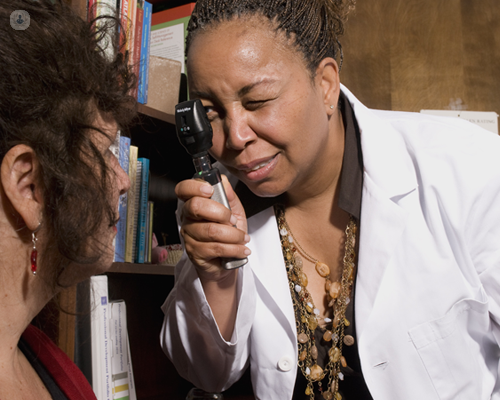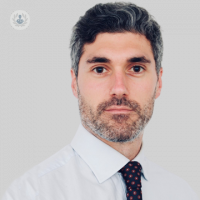What you should know about glaucoma
Written by:Glaucoma is a serious eye condition which affects the optic nerve and if left untreated, can cause blindness.
In this expert guide to the condition, highly esteemed consultant ophthalmic surgeon Mr Francesco Stringa details the principal causes and symptoms of glaucoma and explains how effective and timely treatment can be sight-saving.

What is glaucoma?
Glaucoma is a condition that affects the optic nerve, which is the wire connecting the eye to the brain. It's one of the major causes of severe visual loss in the world, and one of the main features of glaucoma is that the damage to the nerve is irreversible. That means what is lost, can't be taken back. Therefore, prevention and early diagnosis are very important.
What are the first signs that glaucoma is developing?
Glaucoma is also called the silent thief of sight, because one of the early signs of glaucoma is peripheral vision loss. Tendency of losing the edge of the vision, and this is usually not very noticeable, so people aren't aware of having glaucoma until it's very advanced. Other signs can be:
- pain around the eye;
- blurriness, or;
- seeing haloes around light.
What are main causes of glaucoma?
The main cause of glaucoma is high pressure in the eye. The pressure inside the eye goes up because the drainage system in the eye isn't functional and this presses on the nerve which sits at the back.
Other important risk factors to keep in mind are general health conditions, such as high blood pressure and diabetes.
Family history
Family history can affect the development of glaucoma, for example, if parents or siblings have glaucoma. There's a high risk of developing glaucoma.
Age
Also, age is a factor. It seems glaucoma develops more often in people over 60 years of age.
Glasses prescription
Finally, the strength of your glasses is something to keep in mind because people who are very short, or long-sighted, are at risk of developing glaucoma.
Does glaucoma come in stages? What are they?
Glaucoma is a progressive condition which means it has a tendency of getting worse over time. The way it does that, is affects the edge of the region - so, the very periphery at the beginning, when it's called 'early stage'.
Then, progressively towards the centre of the region, through the moderate stage and the more advanced stage. In the advanced stage, only the very central part of the vision is impaired. This is called 'tunnel vision' which is like looking through the keyhole without having any perception of what is around.
What is the most common treatment for glaucoma? Can glaucoma be cured?
Glaucoma is a irreversible condition, which means what is lost cannot be taken back. So that's why preventing further visual loss and curing early-stage glaucoma is important. There isn't a cure for glaucoma, but there are many treatment options. They're all aimed to reduce the pressure of the eye, to a target pressure which is the safe pressure for your eye. Treatment options include the use of eyedrops, to reduce the pressure, which is the most commonly-used. Laser options for more advanced stages; surgery.
If you'd like to book an appointment with Mr Stringa, you can do so by visiting his Top Doctors profile.


